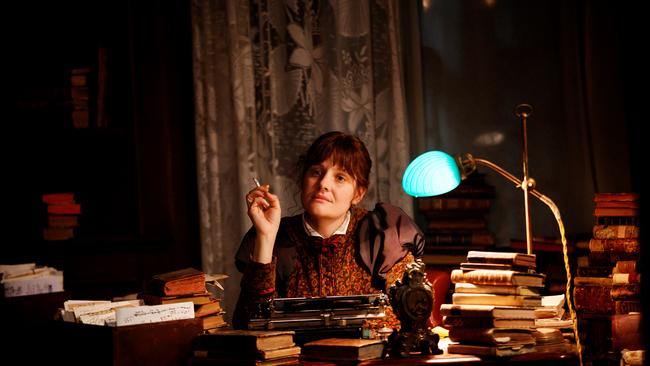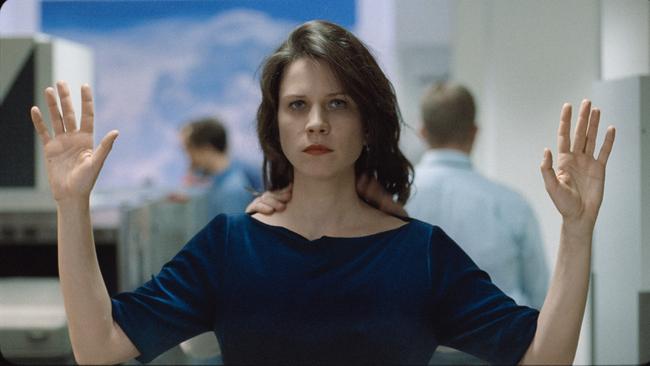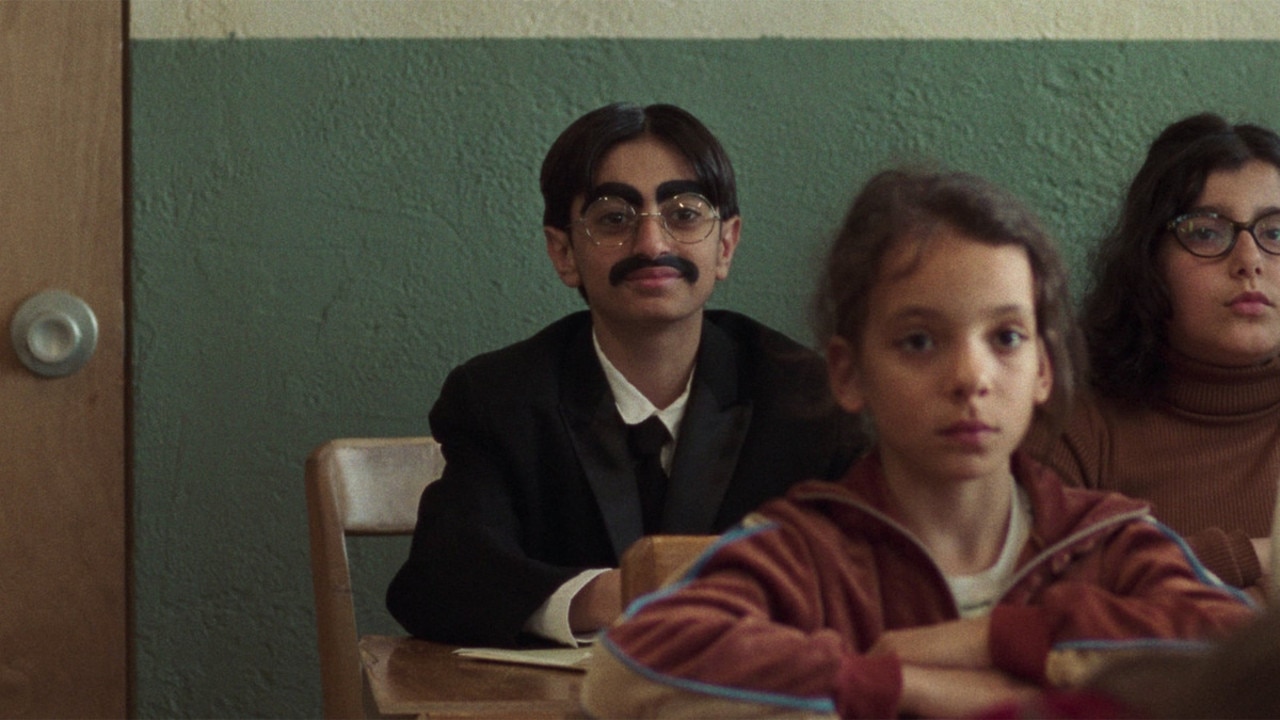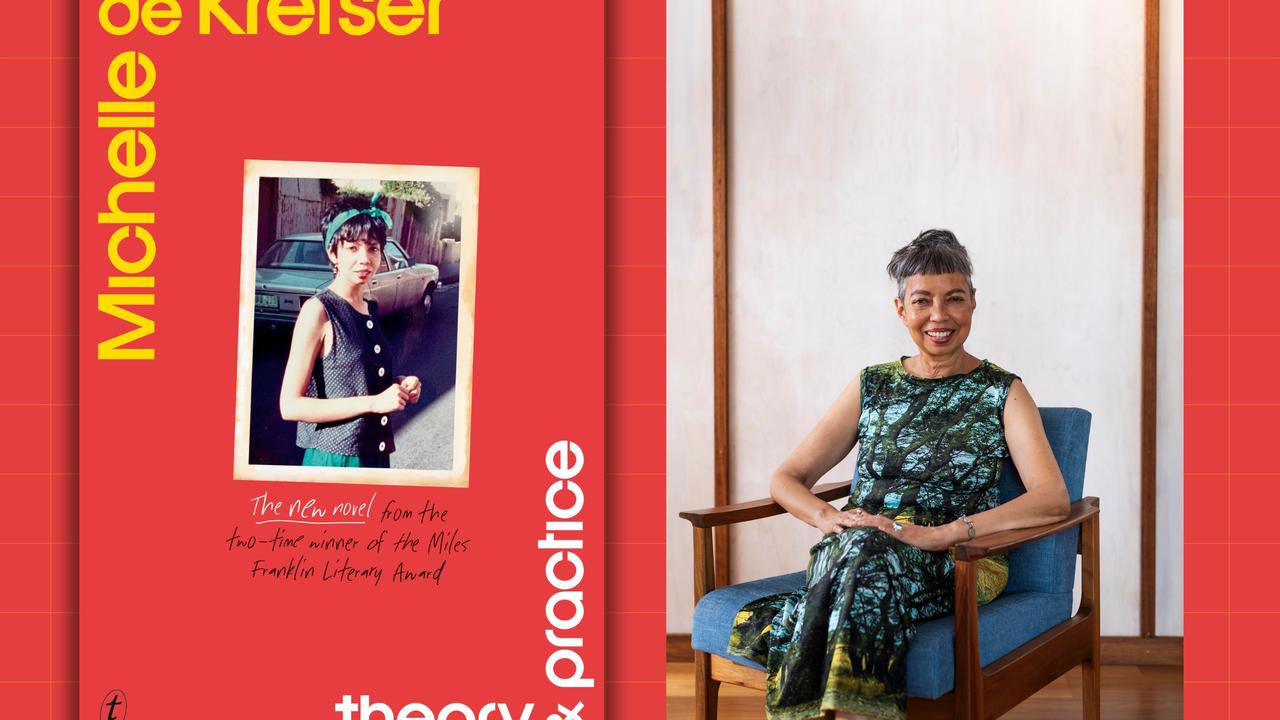Reviews, Miss Marx, Hive and Preparations to be Together for an Unknown Amount of Time
Eleanor Marx was progressive politically but made some very poor personal choices, as we see in the movie Miss Marx.

Miss Marx
In cinemas
★★½
Miss Marx, an Italo-Belgian production made in English, opens with a scene in which Eleanor (British actor Romola Garai), youngest daughter of Karl Marx, delivers a eulogy at his funeral. Commencing as it does with the death of a famous man, writer-director Susanna Nicchiarelli’s biography proves to be a rather gloomy affair that raises all kinds of questions about the ill-fated protagonist.
Eleanor espoused her father’s ideals with a passion; all her life she fought for the rights of the working class, for an end to child labour and for women’s suffrage.
But while she was progressive politically, she made some very poor personal choices. Her relationship with dissolute playwright Edward Aveling (Patrick Kennedy), a serial philanderer as well as an opium addict and spendthrift, proved to be a pretty dire liaison.
How was it possible that a proto-feminist could become involved with such an obviously worthless man?
The film’s only suggestion is that she loved him, but he’s so obviously venal and destructive that Eleanor’s devotion to him becomes rather frustrating.
Apart from this central relationship the film is more successful in its depiction of some of the other key characters who inhabited Eleanor’s world, including her father, who, played by Philip Groning, is seen in some brief flashbacks.
Engels (John Gordon Sinclair) enjoys a somewhat enigmatic relationship with the Marxes, revealing a hitherto untold family secret on his deathbed, while South African radical Olive Schreiner (Karina Fernandez) also plays a key role on the fringes of the family.
This is not a very happy story, and the film tends to wallow a bit in the misery of it all.
Dramatically it’s uneven, ranging in mood between the frankly rather dull and the revelatory.
One of the best scenes consists of a quarrel between Eleanor and Edward, but after it’s over we discover that they were acting a scene from Ibsen’s A Doll’s House.
Edward suggests that the play would have been improved if Laura had killed herself.
Nicchiarelli takes some unusual detours, allowing Garai to break the fourth wall on occasion to address the audience directly.
Most curious, and for me least satisfying, was her anachronistic choice of music; the abrupt use of Bruce Springsteen’s Dancing in the Dark near the end completely destroyed the mood that the film had been striving to create.
Of course, it could be argued that the filmmaker was relating the rebellion of Eleanor to a more recent style of rebellion and radicalisation, but this sort of dramatic coup surely has to be handled with more assurance than it is here.
-
Hive (M)
In cinemas
★★★★
Hard on the heels of the awesomely powerful Bosnian film Quo Vadis, Aida? comes Hive, a production from Kosovo, another of the Balkan countries involved in the destructive conflict that enveloped the former Yugoslavia in the 1990s. Like Aida, Hive is written and directed by a woman filmmaker, Bleata Basholli, a strong indication that the ramifications of the war are still impacting on widows and children.
In the small village of Krusha e Madhe, near the town of Pristina, many of the men disappeared in March 1999 and have never been seen again.
Seven years later, Fahrije (Vilka Gashi), whose husband, Agim, is among the missing, has no idea if he is alive or dead though given the passing of time she naturally assumes the worst. Fahrije lives with her crippled father-in-law, Haxhui (Cun Lajoi), her teenaged daughter, Zana (Kaona Sylejmani) and young son, Edoni (Noah Safciu).
They survive, but only just, by selling honey from their beehives on regular visits to the town.
The men in the village are elderly, too old to have been victims of the war, and they have a deeply patriarchal attitude towards women like Fahrije who, in their view, are still wives, not widows, because the bodies of their husbands have never been found.
Perhaps they escaped the slaughter – who knows? – and may one day return. Frustrated by this rigid domination, Fahrije and her friend, Nazmije (Astrit Kabashi) decide to form a women’s group. Against the virulent opposition of her father-in-law, Fahrije obtains a driver’s licence so that she can have a greater level of freedom – for this she is dubbed a “whore” by the men. The women begin to produce ajvar, a rich paste made from roasted red peppers – a delicacy that she can sell in the town supermarket. Fahrije also becomes involved in the efforts of the local authorities to locate the remains of her husband and other men missing from the village. In one poignant scene she is invited to identify the clothes Agim was wearing the day he was taken away from the village.
This is a true story. At the end of this sober, straightforward, unsentimental film there are photographs of the real women of Krusha e Madhe and an end title informs us that 1,600 men from the region are still missing today. Basholli’s passionate cri de Coeur on behalf of the women is a forceful and moving one. Hive provides painful insights into the aftermath of the war and its effects on the women who, thanks to the rigid approach of the surviving men, were often denied even a reasonable chance of a future.
-
Preparations to be Together for an Unknown Amount of Time (Felkeszules meghatarozatlan ideig tarto egyattletre) (M)
In cinemas
★★★½
The Hungarian capital, Budapest, is divided in two by the River Danube, with Buda on one side of the river and Pest on the other. Numerous magnificent bridges span the waterway, and, like Paris, the riverside setting is a very romantic one.
In this surprisingly classical production, a 40-year-old Hungarian woman surgeon, who has been living and working in America, has a brief encounter with a fellow Hungarian at a medical conference; they hit it off and arrange to meet again on a certain day and at a certain time at the Buda side of the Liberty Bridge. The film opens on the plane on which the woman is flying to meet her lover. With Leo McCarey’s exquisite An Affair to Remember as a reference, you won’t be surprised to learn that the romantic rendezvous doesn’t work out; Maria (Natasa Stork) waits in vain for Janos (Viktor Bodo) to show up.
Undeterred, Maria tracks Janos down, confirms that he’s a surgeon employed in a major hospital, and confronts him in the hospital car park – but to her dismay he denies having ever met her.
Writer-director Lili Horvat is delving into themes that were popular in films of an earlier era, and has brought them up to date very successfully. Maria’s determination to discover why Janos has rejected her, her decision to stay in Budapest, rent an apartment, and apply for a post as surgeon at the hospital where Janos works, are all testament to her tenacity.
A very fine central performance elevates this handsomely produced, if somewhat old-fashioned, movie. Horvat is clearly wedded to the proposition that, in a romantic city like Budapest, love is there for the taking and while you could question Marta’s impetuousness you have to acknowledge her courage in not accepting defeat. At the same time an opening quote from Sylvia Plath’s “Mad Girls Love Songs” suggests another level on which to explore Marta’s story.





To join the conversation, please log in. Don't have an account? Register
Join the conversation, you are commenting as Logout